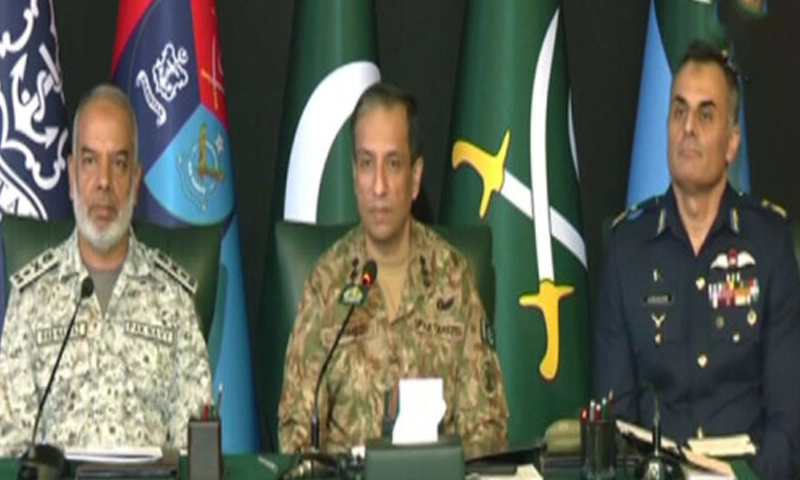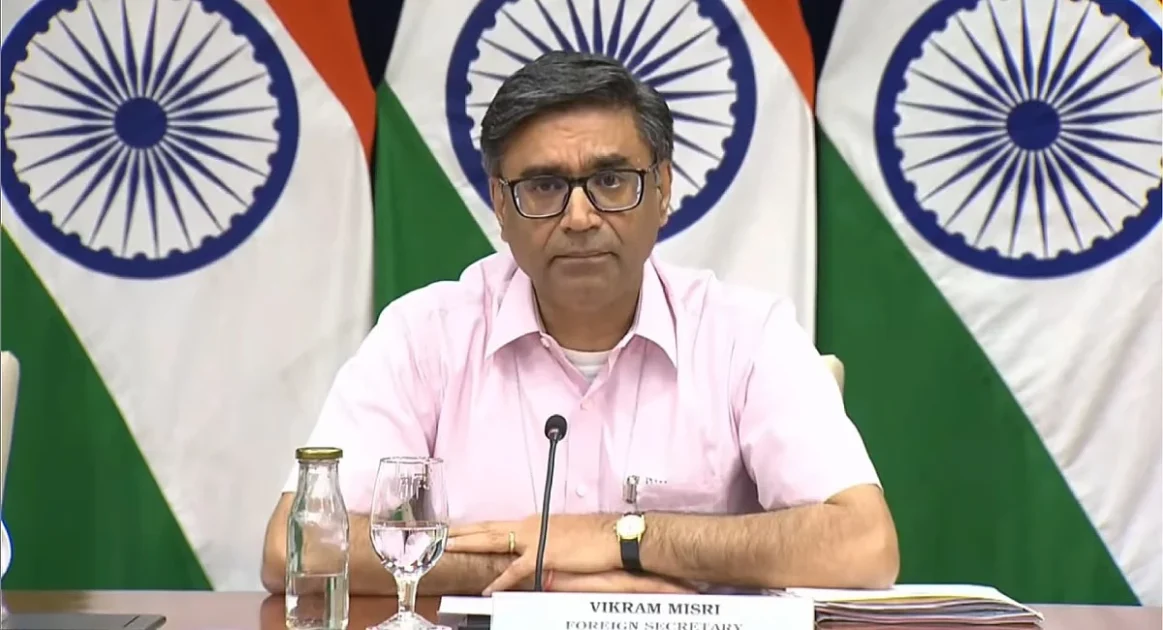- Javed Somroo Web Desk
- 2 Hours ago

AWP calls for united front in S Asia against exploitation, repression and xenophobia
-

- Web Desk
- 3 Hours ago
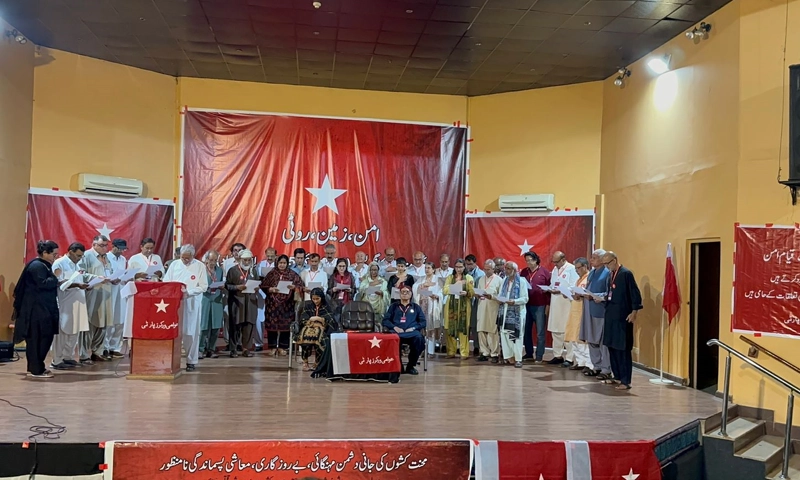
ISLAMABAD: The Awami Workers Party (AWP) has called on the working people of Pakistan and the wider South Asian region to resist narrow state nationalism and jingoism, warning that the challenges of climate change, dispossession, state repression and right-wing xenophobia require a collective response rooted in solidarity and progressive politics.
These views were echoed during the party’s 4th delegate congress held in Islamabad, where around 200 delegates from across the country gathered for two days of political discussions and organisational decisions. The congress emphasised that a genuine progressive agenda must centre on the struggles of oppressed nations and the working class.
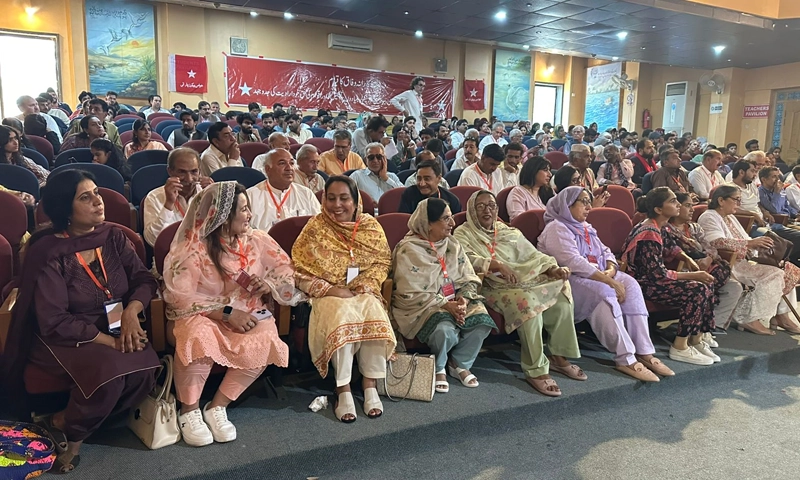
The gathering also marked the election of the party’s new office-bearers. Bakhshal Thalho was elected as general secretary, Aasim Sajjad as deputy general secretary, Marvi Latifi as finance secretary, Tooba Syed as information secretary, and Farman Ali as secretary for international affairs.
In addition to AWP leaders, the congress was addressed by prominent progressive figures including Afrasiab Khattak of the National Democratic Movement (NDM), Farooq Tariq of the Haqooq-e-Khalq Party, and Ayub Malik of the National Party.
Also read: AWP backs Diamer-Bhasha Dam affected people, opposes mineral exploitation in G-B
The recent tensions between India and Pakistan were amongst the major focus of the Congress debates, including the complete slide of India into right-wing Hindutva nationalism and the rapid militarisation of Pakistani state and society.
There was also a focus on the geopolitical tussles involving other regional and world powers that is becoming known as the ‘New Cold War’.
The Congress said that while the Pakistani establishment engages the US, China and the Gulf kingdoms in their competition for control over critical minerals and other strategic forms of control, the peoples of war-torn peripheries like Balochistan and Khyber Pakhtunkhwa as well as contested regions such as Azad Jammu and Kashmir and Gilgit-Baltistan, are increasingly subject to brazen violence, colonial statecraft and other forms of brutalisation.
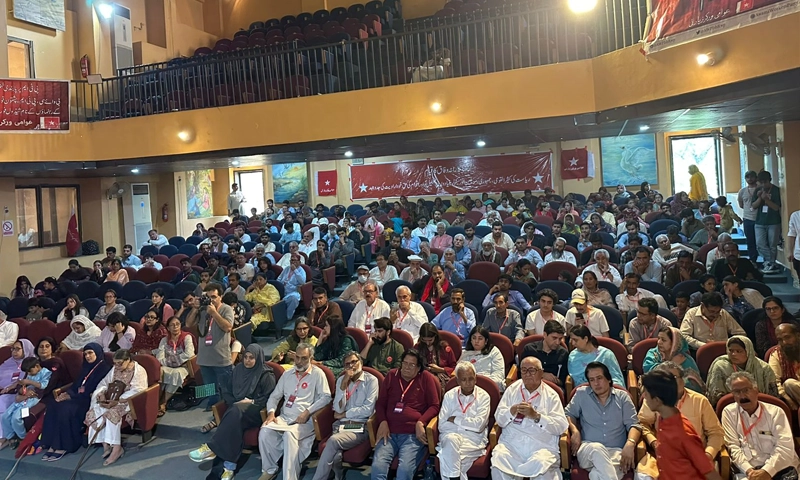
Meanwhile, the drumming up of war sentiment within the political and intellectual mainstream distracts even from the deep anti-establishment sentiment that persists in mainland Punjab, thereby making it more difficult for a unified struggle against the prevailing order.
The Congress also called attention to the rapidly deteriorating environmental landscape due to the dominant developmental regime propped up by donors like the IMF, Pakistan’s own bourgeois parties, bureaucracy and the military establishment.
Whether it is the preposterous six-canal project that threatens the desert ecologies of the Siraiki Wasaib and all of Sindh, the pillaging of GB and AJK in the name of tourism, or ‘development’ projects like the Gwadar port in Balochistan, the result is dispossession of local communities and destruction of ecologies.
Meanwhile, the Congress noted that real estate schemes are built endlessly in metropolitan centres while regressive taxation, unemployment and other forms of economic hardship worsen with each passing day The AWP believes that an alternative socialist model of development must be adopted to end class war by the rich and defend nature against complete devastation.
Finally the Congress demanded accountability for the continuing patronage of so-called ‘good’ Taliban groups and other military right-wing organisation by the Pakistani state.
The AWP believes that the only meaningful way out of the endless bloody games in Pakhtunkhwa is for the security establishment to abandon its long-standing desires for a so-called ‘friendly government’ in Kabul.
The party also demands demilitarisation of Balochistan, including an end to the grotesque policy of enforced disappearances.
It demanded that criminalisation of peaceful and democratic movements demanding peace like the BYC, PTM and Ulasi Pasoon must also end.
The mainstream parties who have remained silent or complicit in the face of growing militarization as well as resource grabs and class war across the country offer no hope to the people of Pakistan who face the fallouts of the politics of hate.
The AWP has called upon all progressive forces to come together to resist the intensifying militarization of state and society and build a genuinely democratic and anti-imperialist alternative in which all forms of oppression and exploitation are eliminated.

